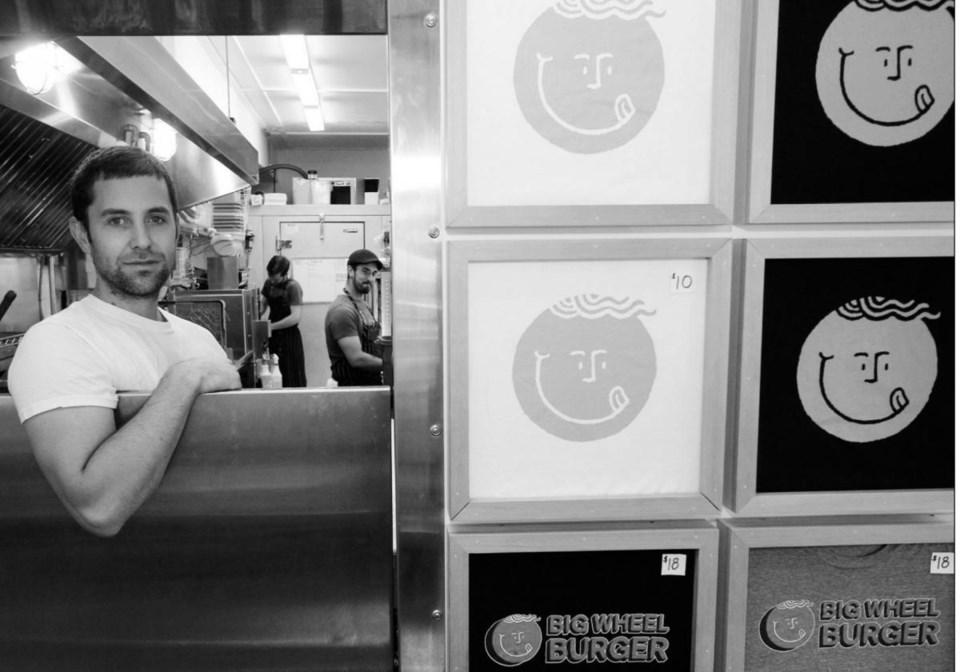They haven't started marketing it as a burger with a side of environmental activism.
But Big Wheel Burger in Cook Street Village may be heading in that direction after a first year in business capped off with carbon neutrality.
The popular burger joint, which opened late last fall, completed a combination of initiatives, including composting, recycling, reducing waste and smarter use of energy. In all, the company reduced its environmental footprint to 67 tonnes of carbon, which it offset by investing in local environmental projects.
General manager Matt Quinn said the drive to carbon neutrality - and being the first fast food joint in the city to be certified as such - started before the restaurant was open. He said the company's philosophy was to establish a sustainable and socially conscious business.
"When we were thinking about composition of our burgers and products, we wanted to use the best quality meat, so you start looking at smaller farms and hormone-free, antibiotic-free beef," Quinn said.
That was the jump off point to look at recycling and composting. "It's common to do that in your house, why not a restaurant?" he said.
"We think it's likely to be mandatory for businesses like ours in five to seven years, so hopefully we are ahead of the curve." He said Big Wheel wanted "to do these things ahead of time, learn to do them right and have the business model in place, so if we open another location then we can follow that model."
Quinn said 95 per cent of all their waste, including the wrapping and packaging the food comes in, is composted. They recycle whatever is possible, use energy smart appliances, LED lighting, low-flow water devices and biodegradable cleaning supplies. They use as many local suppliers as possible, and encourage employees to bicycle to work. Less driving means fewer emissions.
The result is the 67 tonnes of carbon. Similar businesses tend to produce about 350 tonnes of carbon annually, said Jill Doucette of Synergy Enterprises, which works with small businesses to "green" their operations.
"When we measured their carbon footprint we found through the composting effort Big Wheel avoided more carbon emissions than they produced in a year," Doucette said, noting the company will annually measure its footprint and offset it by investing in local carbon-offset projects.
Doucette said they measure all operations from food preparation and cooking through to employee commuting and deliveries brought to the restaurant.
"Basically all operation and emission sources that happen because Big Wheel Burger exists, we try to account for everything that happens," she said.
Big Wheel has set new goals for the next year to try to hit 50 tonnes of carbon.
Doucette noted not only is the restaurant cutting down on its emissions and environmental footprint, but it's going to help its bottom line in the long run.
"Reducing the impact and gaining efficiencies always leads to a better bottom line," she said. Doucette is working to break down the perception that taking these kinds of steps adds to an operator's costs.
Quinn said it's hard to know at this point if the commitment to keeping their burger joint green is a competitive advantage. "But it certainly makes us feel a lot better," he said. "I hope people make the choice to come to us because of these efforts as well as the great cheeseburger we offer."
This week Big Wheel is celebrating Climate Action Week with $1 from every transaction donated to the LifeCycles Project Society.
On Saturday the restaurant is holding a demonstration day to show its commitment to sustainability with a free hard-to-recycle drop-off station, information and demonstrations of Big Wheel's composting process as well as information on growing food.



